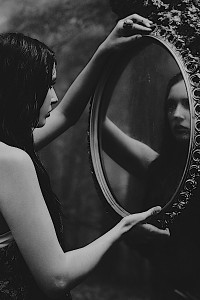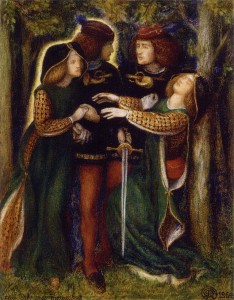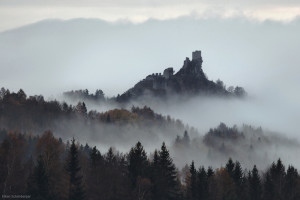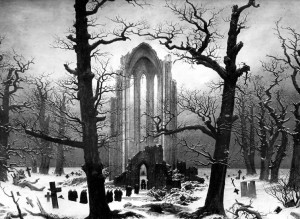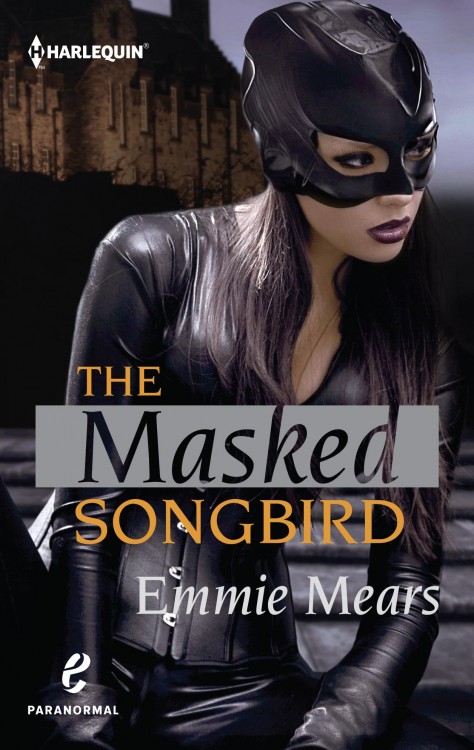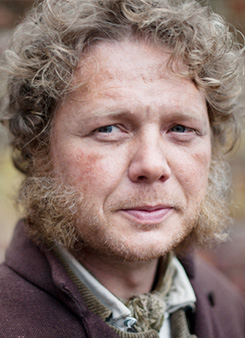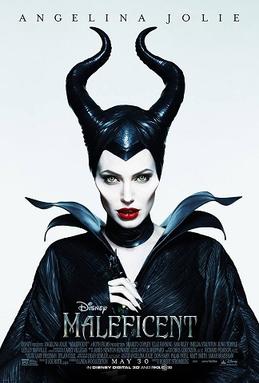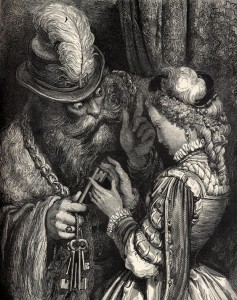Hello my loverlies! I’m over at the Spellbound Scribes blog talking about how to weather the perils and pitfalls of the query process with grace. Expect new posts to go up next week! Until then, have a good weekend!
Blog
Pitch Wars: Why I Wrote REVERIE
Four years ago, I packed up a rental car with 2 giant suitcases, my comforter, and my bike, and drove all the way from my Florida hometown to Washington D.C. I had recently graduated undergrad and was moving to the home of American government for the foreseeable future. I made the drive up alone–my then-boyfriend (now husband) had already flown up the month before to find us an apartment.

Like this, but with fewer friends.
Driving for thirteen hours straight with no one to talk to gives a person time to think. Music was blasting from the CD player, and as the notes swirled around my brain a vague story started to coalesce. Inspired by the soaring refrains and intense lyrics of Muse’s latest album, the story was grand and sweeping and dramatic. An epic tale of romance and betrayal. Politics and religion. A city on the brink.
When I stopped off at the next rest area, I jotted down a few notes into my journal. “Mad Men meets Ancient Rome meets War and Peace,” the notes read. “Star Wars meets Gone With the Wind.”
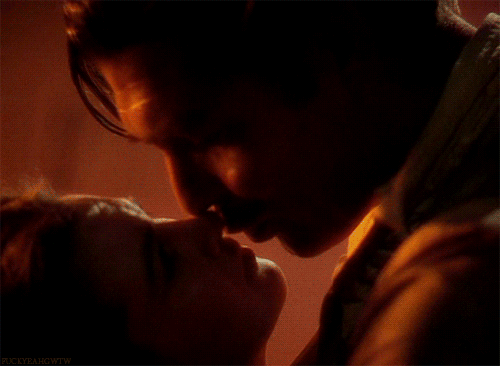
“Kiss me, once.”
I was only a slightly ambitious.
Doppelgängers
Picture this: you’re standing in front of the mirror, brushing your teeth. Your reflection stares placidly back. A whistle from the kitchen startles you–you turn to look into the kitchen, and you see the noise is just the kettle going off. You turn your gaze back to the mirror, and in that instant, out of the corner of your eye, you are certain that your reflection has not moved. You lock eyes with yourself, but your reflection seems suddenly wrong. Are your eyes really so dark? Your chin so sharp?
But no. You tell yourself you’re just being stupid. Of course that’s what your reflection looks like–it’s you, after all. Isn’t it?
Maybe. Or maybe it’s your doppelgänger.
Although the German word doppelgänger, translating literally to “double-goer,” is a relatively recent addition to the vernacular, the concept of an alter-ego or shadow self appears frequently in the mythology and folk-lore of many world cultures. Although a physical lookalike or double of the person in question, a doppelgänger often takes the role of a darker counterpart to the self. In many cultures, it is said that to catch a glimpse of one’s doppelgänger is a harbinger of bad luck, and potentially an omen of one’s own death.
In ancient Egyptian mythology, the ka was a tangible “spirit double” possessing the same memories and feelings as the physical counterpart. In some myths, the shadow double could be manipulated to perform tasks or duties while acting as their physical counterpart. In Norse mythology, a vardøger was a spirit predecessor, a shadowy double preceding a living person in location or activity, resulting in witnesses seeing or hearing a person before they actually arrived. And in Celtic mythology, a fetch was an exact, spectral double of a person, whose appearance was ominous in nature, often foretelling a person’s imminent death. The fetch could also act as a psychopomp, stealing away the soul of their living double and transporting them to the realm of the dead.
Haunted Landscapes
This past weekend I was privileged to attend Sirens 2014, a writer’s conference devoted to literature by and about women. I attended so many fantastic keynotes and panels, and found kinship and inspiration in the ideas and creativity of my fellow attendees. One panel in particular, however, sparked something deep within me; the panel discussing Haunted Landscapes, hosted by Kate Tremills, Roberta Cottam, and Kathryn Cottam. Perhaps it was the just the fog-drenched hills of the Columbia River Gorge, but the idea of landscapes echoing with memories of the past promptly tip-toed into my imagination–and refused to leave.
When I first heard the phrase haunted landscape, my mind immediately conjured up the setting of Wuthering Heights; a windswept moor, howling with the voices of restless spirits, and a cold, empty manor, full of memories and secrets. But any landscape, really, can be haunted–by terrible acts of violence, or moments of human bravery. History, memory, action–places are indelibly marked by the past, and by the people whose lives shifted and changed the environment around them.
All too often, a haunted landscape is one that has borne witness to bloodshed, tragedy, or death. Ghosts of terror shade the atmosphere of a place, and some things never leave. We’ve all experienced this–the sudden hush of a cemetery, the creak of tree branches heavy with some unseen burden. In college, I visited the Sachsenhausen Concentration Camp just outside Berlin. From the moment I set foot through those gates, I sensed the layers of memory and pain etched into the very earth I walked on. The site of the Battle of Culloden–a battlefield soaked with the blood of an entire people, where the grass and sky heard the final breaths of a thousand brave soldiers. Tiananmen Square. The Tower of London. A Native American burial mound.
Monthly Post at Spellbound Scribes
Hello, my lovelies! Because it’s Halloween month, when the leaves start to change and everything is pumpkin flavored and things go bump in the night, I thought I’d try my hand at a piece of horror flash-fiction, called “Lost at Dusk”! Check it out here!
What’s your favorite thing about autumn? Let me know in the comment section below!
#PitchWars Mentee Blog Hop!
Oh! Hello there! I am delighted to be participating in Brenda Drake’s fantastic Pitch Wars contest this year, and figured I ought to throw my bio out there as part of the Mentee blog hop! If you have no interest in learning more about me, or for some reason really hate obnoxious amounts of GIFs, well, you might want to move along.

First off, I’m Lyra! (Yes, it’s my real name, and yes, the Golden Compass books were based entirely on my life.) I’m 26, and live in the Best City in America, aka Boston.
I’ve been writing since a very young age. My mom recently unearthed a short story, written and illustrated by eight-year-old moi, about a farmer tying chickens to pigs in order to prove the old adage “when pigs fly.” In 5th grade, I wrote a novel about a warrior princess named Jade and her trusty unicorn steed. My stories have since become slightly more sophisticated.
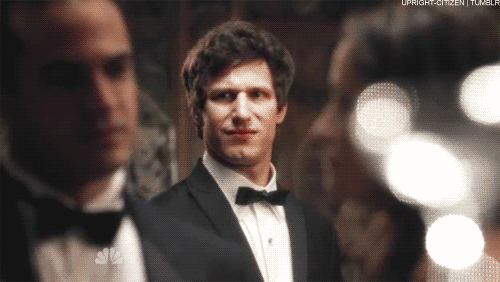
I’m pretty bad at Twitter. Like, I still don’t really get it?
I read. A lot. My worst nightmare is people asking me what my favorite book/author is–that question has no answer. I love fantasy first and foremost, but I’ll read just about anything. The last book I cried over: Leigh Bardugo’s Ruin and Rising. The last literary book I read: Donna Tartt’s The Goldfinch. Book I’m itching to get my paws on: Sarah Rees Brennan’s Unmade.
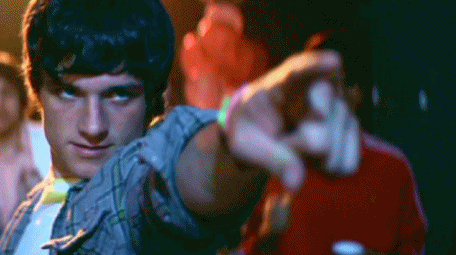
I graduated from the University of Florida. With a major in Political Science and a minor in English. I once took a class called “Victorian Vampires” from a Romanian professor named Dragan who wore only black. (You can’t make this stuff up.)

I play the piano, sing, paint, and do calligraphy. My husband says I belong in an Austen novel since I’m such an “accomplished young lady.”
I am a fangirl. Full stop. I belong to more fandoms than I care to name. Supernatural, Doctor Who, BtVS, Battlestar Galactica, GoT…the list goes on. And on. I have no shame. What can I say, I love to squeeeee!

When I’ve had a few glasses of wine, I start to sound reeeaalll Southern. But that’s okay–there’s something to be said for growing up in the South.
And that’s me in a nutshell!
Be sure to head over to Dannie Morin’s blog to check out the other Mentee bios!
O Captain! My Captain!
I don’t usually blog about current events, much less celebrity deaths. When the newspapers are filled with school shootings and police shootings and dead Palestinian children and natural disasters, spending time mourning a famous person seems worse than trivial.
But it is a queer thing to cry for a stranger. To feel tears running down your cheeks and an ache in your chest for someone you never met, someone you only know through their on-screen performances. To feel genuinely heartbroken about the suicide of a famous person. But that is how I feel about Robin Williams’ death, and if the lachrymose outpouring on social media is any indication, I’m not the only person grieving for the late actor and comedian.
I never met Robin Williams, but he was a fixture in the pop culture of my childhood and an icon for my generation. He outran a stampede of animatronic jungle animals in Jumanji. His manic, ebullient, and mercurial voice-acting brought Genie to life in Aladdin. He hilariously cross-dressed as a Scottish nanny to spend time with his children in Mrs Doubtfire. And when I was older, he sat on a bench in the Boston Public Garden and said to a young and arrogant genius, “You’re just a kid. You don’t have the faintest idea what you’re talkin’ about.” He taught a group of young men about loving literature, about standing up for what they believed in, about seizing the day. “That the powerful play goes on, and you may contribute a verse.”
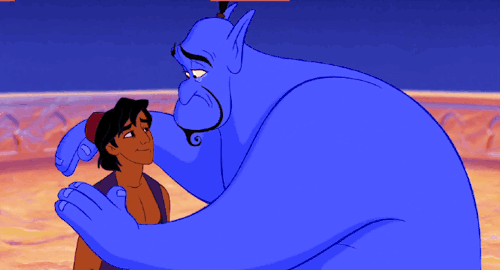
Genie, you’re free.
And that’s just to name a few.
THE MASKED SONGBIRD, by Emmie Mears!
Sometimes, when you meet a random roommate on Craigslist and move in with them, they wind up stealing your food or refusing to take out the trash or throwing all-night ragers in your living room. And other times–if you’re reallllllyyy lucky–they become successful writers and bloggers who go on to found websites and publish books.
Emmie, as you may have guessed, is the latter kind of roommate. United by Craigslist, we bonded over our shared Celtic heritage, our love for Buffy the Vampire Slayer, and our aspirations to become writers. Although we no longer cohabitate, Emmie and I have kept in touch for years, and I couldn’t be more pleased to announce that her first book, The Masked Songbird, is being released by Harlequin in July! Set in Scotland on the eve of the Scottish Independence Referendum, the novel tells the story of Gwen Maule, a young woman who develops powers after she accidentally drinks a strange beverage.
Here’s Emmie to tell you a little bit more about herself, and her new book! Make sure to snag a copy of The Masked Songbird on July 1st–you can preorder it HERE!
1. Hello Emmie! Thanks for being here. I’m so excited to get my grubby paws on The Masked Songbird at last! Tell us a bit about the titular superhero, Gwen Maule. What is the quality you most admire in her, and what do you think is her biggest flaw?
Even at her worst, Gwen is nothing if not tenacious. I think that’s probably her best quality and one I try to emulate. She keeps trying even when things go wrong. Even when her life sucks, she keeps getting up in the morning. I think her biggest flaw is thinking she can do it all herself. In spite of her superpowers, she can’t be everywhere at once.
5 Favorite Literary Fathers
Being a father ain’t easy, and it’s nigh-on impossible to pin down the archetype of a great dad. But, literature has certainly tried.
As a follow-up to my Literary Mothers post, I thought I’d do a corresponding post about literary dads just in time for Father’s Day on Sunday. Literary fathers certainly run the gamut when it comes to character: they can be heroes or villains, role models or examples of how not to be, loving or distant, protective or abusive. But the men on my list all share one thing in common: they love their children, and want what’s best for them in this wild, complicated world.
And so, with no further ado (and in no particular order), here are my top 5 literary dads!
Joe Gargery, Great Expectations by Charles Dickens
Although technically Pip’s brother-in-law, Joe Gargery is the closest thing the boy has to a father. Joe is passive, and often downtrodden by his overbearing wife, but he is also kind and loving and adores Pip as his own. He gives Pip much-needed affection, passes him extra food under the table, and when Mrs. Joe is on a rampage, he tries to protect Pip from her verbal and physical abuse. He loves and supports Pip unconditionally, even when Pip inherits a mysterious fortune, moves to London, and becomes an imperious, pretentious, unbearable ass. Now that’s what I call a good father!
4 Fairy Tales I’d Rather See Adapted
Unless you’ve made yourself a nice, cozy home beneath a rock somewhere, you’ll know that the last few years have witnessed a veritable explosion of TV and film-based adaptations of classic fairy tales. ABC’s Once Upon a Time indiscriminately mashes together every fairy-tale character ever into one small town. Mirror Mirror and Snow White and the Huntsman both attempted to rejuvenate the Snow White story. Beauty and the Beast, on the CW, is a modern retelling of the classic “beauty is only skin deep” narrative. And most recently, Maleficent seeks to rehabilitate the titular villain from Sleeping Beauty.
But for the most part, all of these shows start where the Disney versions left off. Well, I’ve got news for you, folks: Disney’s fairy tale mythology is pretty different than the original versions of most fairy tales. The collected folk stories of the Grimm brothers, Charles Perrault, and Hans Christian Andersen often ended in misery, tragedy, and violence. So, in the spirit of contrarianism, I thought I’d put together a list of all the creep-tastic original versions of fairy tales that I’d rather see adapted to the big screen than yet another Disney-fied mush-fest.
Bluebeard
Although no one knows what became of Bluebeard’s previous wives, he somehow entices a young woman to marry him. He gives her the keys to all the rooms in his castle, including one small room which he adamantly forbids her from ever entering for any reason (bad move). Predictably, the moment Mr. Bluebeard goes out of town his young wife heads straight for the forbidden room, only to find it awash in blood and the carcasses of Bluebeard’s former wives hanging from hooks in the ceiling.
The Hollywood adaptation of this classic boy-meets-girl boy-loses-girl romcom will star George Clooney as our wise-cracking anti-hero and Scarlett Johansson as his headstrong wife.
